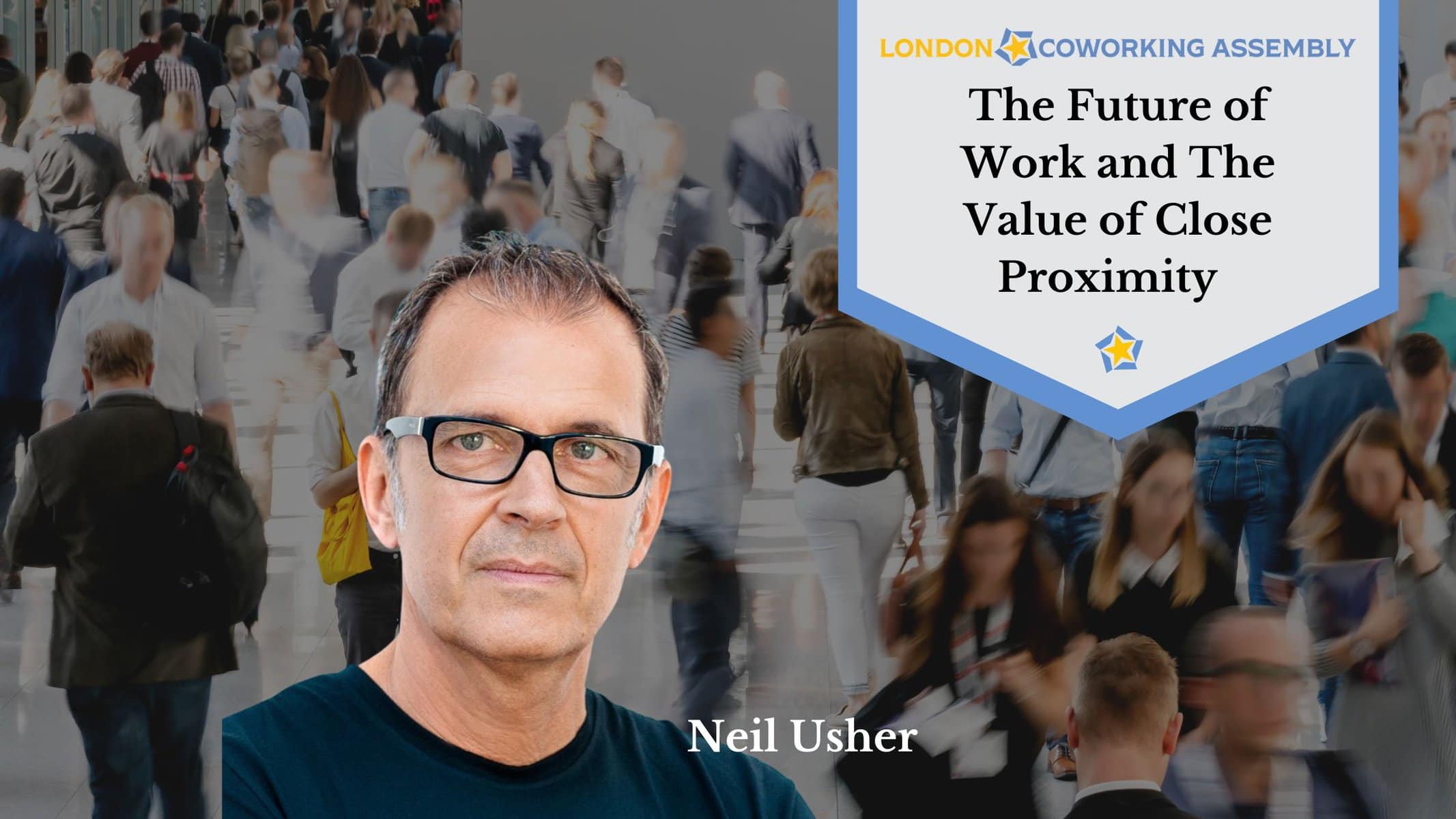Neil Usher is the chief workplace and change strategist for GoSpace, who has also received an award in workplace design in property. Having gained experience internationally, Neil has led complex transformational programmes and organisational change programmes in various industry sectors in over thirty countries. The programmes he has led range from commercial development, design and delivery, management of office, strategy, as well as technical and industrial facilities.
If he does not already sound incredibly successful, he is also the author of two books. Titled, “The Elemental Workplace” published in 2018, and “Elemental Change: Making Stuff Happen when Nothing Stands Still” published in 2020. Neil’s third book “UnF*cking Work” is due to hit the shelves in September 2022.
One of the major questions that are asked in coworking is “who is your coworking space for?”. Honestly, the answer to this changes from person-to-person and it seems like there is no clear and concise answer. That being said, however, we are able to figure out the importance of the spaces we have and how they are able to evolve to fit into today’s society.
Space is for the community
Upon remembering having a meeting with the owner of Impact Hub Islington (that in those days was by Angel station), in 2010 Neil explains that “They spent a couple of hours with us telling us about the philosophy, the ethos. What this is all about and that it was a community. This wasn’t about office space, you joined the community and you brought a skill or expertise with you, which was advertised to everybody else.” When he was experiencing his first coworking space in 2010, it was not in a high end building, it was an old indoor paintball factory that had been repurposed.
What really gained Neil’s attention and impressed him was how the space operated. Basically, there were various notices and these notices stated what a person specialised in and if you need advice you could talk to that specific person then. The people who went to this coworking space were not part of the same company, yet they all brought something different to the table. In 2010 this was a completely new concept that was unheard of before, but it worked.
Another part that stood out to Neil was the overall positive energy and atmosphere that came with the space. The people and the community it made was what drew people in and made them want to become a part of it. In this environment the space was for the community it was made because you could not have the one without the other, it was harmonious.
What is the future of work?
“We’ve talked about this before over the years, but we’ve kind of got to sort out the present of work before we really think about the future of work, because realistically, it’s always the future of work.” states Neil.
A common question that is brought up in seemingly all industries is “what is the future of work?” and as Neil had stated it will continue to be a question as we progress. But a question that seems just as important, yet not asked as often is “what is the present of work?”. We are often worried about what the future of work will become, so we almost neglect what work is in the present day.
By putting more focus on what work means in the current landscape we will be able to understand what it will evolve into. Similarly, this concept is how coworking will evolve as well. Within the past few years work has evolved from being in an office space every day to working remotely, and now working in a hybrid format.
Coworking has evolved in the same way. With more people coming into coworking spaces to be with other people, not necessarily from the same company, but to work and simply experience working with other people.
The value of close proximity
“You bring your own work, but you don’t just sit there chatting the whole time, because you have things you have to get on with. But from time-to-time that conversation will surface because someone asks a question, or someone offers an interesting thing they’ve discovered and the discussion continues, and then it dies away. As people get back on with their work again, that proximity is hugely valuable.” Neil explains.
A benefit of working in close proximity to people is that you are able to have interesting conversations with them, either about work or a different topic. An argument or debate that has been circling through different industries is whether people should come back to working at the office or stay at home and work. This debate is not taking into account an important aspect, and this is the benefits of people working closely together.
Working in close proximity could mean working in the office from time-to-time, or going to a coworking space to have discussions with colleagues. Either way, there is a sense of community and connection that develops from the interactions that take place. That interaction helps release pent up frustration and makes it easier for them to convey any discussions that need to take place.
These interactions and the close proximity of working with others is what coworking is all about. It is about forming a community, encouraging conversations, and building connections with people from different industries.
To hear more about coworking spaces and to figure out who your coworking space is for, join Neil Usher, Pauline Roussel, and Shazia Mustafa on 20 June to have an open conversation at the London Coworking Assembly Breakfast Show. The Breakfast will be at XCHG at 22 Bishopsgate, from 09:00 till 11:00. RSVP here, save the date and join in on the discussion!

